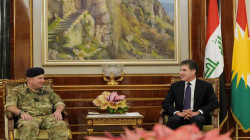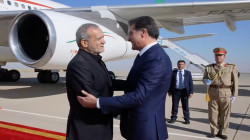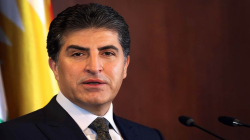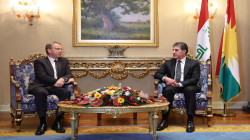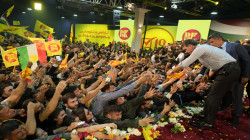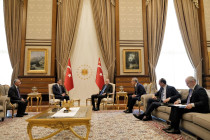From Erbil to Munich: President Barzani’s active diplomatic engagement at MSC2025
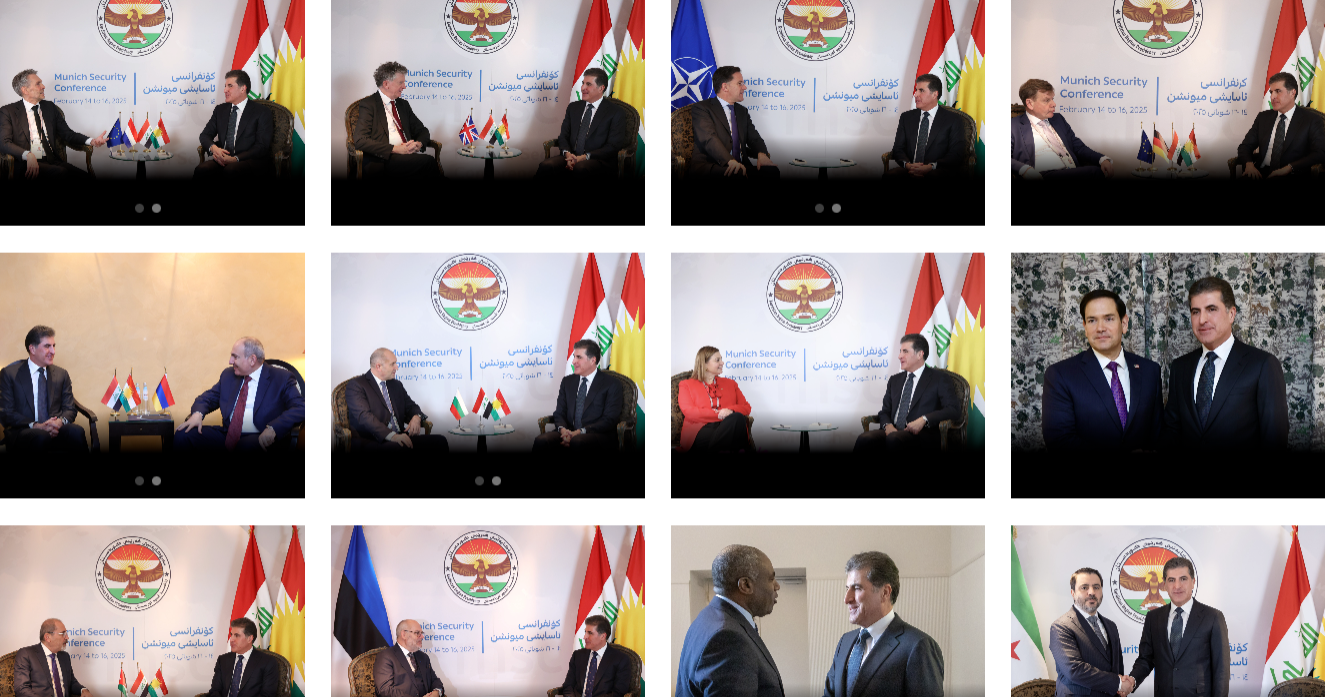
Shafaq News/ The Kurdish President Nechirvan Barzani's sixth participation in the Munich Security Conference (MSC2025) marked a paramount moment for the Kurdistan Region of Iraq (KRI) as the president held extensive meetings with global leaders and senior officials, discussing pressing regional and international issues.
Representing both Baghdad and Erbil, he emphasized the Kurdistan Region’s commitment to regional peace, counterterrorism, and economic development.
According to observers, President Barzani’s participation in MSC2025, along with Iraqi Prime Minister Mohammed Shia al-Sudani, reinforced the Region’s strategic importance in regional and global affairs. Through high-level diplomatic engagements, he positioned Kurdistan as a key partner in addressing security challenges, fostering economic growth, and enhancing international cooperation.
Stronger Ties with Baghdad
Barzani’s Participation was not limited to Kurdish issues but also extended to enhancing Iraq’s image. He stated in various meetings that the situation in Iraq is "good," with new construction projects underway.
He also expressed optimism that the country would not experience major crises affecting its people, “who deserve a better quality of life.”
Barzani praised the improvement in Erbil-Baghdad relations, thanking Al-Sudani for his mediation efforts and emphasizing cooperation as key to mutual interests.
Syrian Crisis and Regional Stability
During a press conference held on the sidelines of the conference, President Barzani revealed that the Syrian issue was one of the main topics in all the meetings. "What is happening in Syria is encouraging in terms of the fall of an authoritarian regime, and we hope the current authorities will include all components of Syria."
Barzani expressed his longing for the cities of Qamishli and Damascus, wishing to visit them someday, as well as Aleppo and Afrin.
In a key meeting with Syrian Transitional Government Foreign Minister, Asaad Al-Shibani, he stressed the importance of “safeguarding the rights of all Syrian communities, including Kurds,” highlighting the need for an inclusive governance framework and reiterating his call for a peaceful transition in Syria.
He called for “a political model acceptable to all Syrian parties, one that reflects a pluralistic vision that accommodates the unique characteristics of each country.”
Strengthening US-Kurdistan Relations
President Barzani also met with key US officials seeking to deepen strategic ties in security and defense amid ongoing regional challenges.
The US officials included Secretary of State Marco Rubio and Senator Elissa Slotkin, Senator Elizabeth Warren, and Congressman Chris Van Hollen, to discuss enhanced security and military cooperation.
He extended an invitation to Rubio to attend the inauguration of the new US Consulate in Erbil.
In turn, Washington reaffirmed, through its officials, its commitment to supporting the Peshmerga forces and broader security coordination.
“The new US administration views matters differently, with President Trump focusing on ending wars and establishing peace in the region, which aligns with the current needs of the world.” Barzani reaffirmed in his meetings.
Regional Cooperation: Turkiye and Arab world
In a meeting with Turkish Foreign Minister Hakan Fidan, Barzani emphasized Kurdistan's commitment to continued security cooperation with Ankara.
He referred to Fidan as his "friend" and emphasized the mutual interests driving this partnership.
In addition, the Kurdish President met top Arab officials including Jordanian Foreign Minister Ayman Al-Safadi, Kuwaiti Prime Minister Sheikh Ahmad Al-Abdullah Al-Sabah, and Bahraini Foreign Minister Abdullatif Al Zayani. Talks centered on deepening political and economic ties, as well as regional security challenges.
In a separate meeting with Qatari Minister of State for Foreign Affairs Mohammed Al-Khulaifi, Barzani discussed Iraq’s political situation and Middle East developments, with a focus on Syria.
“Both parties reaffirmed their commitment to fostering peace and stability in Syria, while also addressing the Kurdish situation and other communities in the new Syria.”
European Partnerships
Barzani engaged with key German leaders, including Boris Pistorius, Defense Minister, Niels Schmid, spokesperson for foreign affairs in the Social Democratic Party (SPD); Andreas Schwarz, a member of the Defense Committee; Metin Hakverdi, a member of the Budget Committee; and Niels Annen, Minister of State at the Ministry of Economic Cooperation and Development.
He also met with Tobias Lindner, Minister of State at the Federal Foreign Office, and State Secretary at the Federal Ministry of the Interior and Community, Hans-Georg Engelke.
President Barzani expressed the Kurdistan Region's appreciation for the “continuous” German support and assistance, emphasizing the importance of its continuation to enhance stability in the Region and Iraq.
In turn, the German officials reiterated the country's commitment to supporting the Kurdistan Region, stating that strengthening cooperation between Germany, Iraq, and Kurdistan is essential in the context of international efforts to combat terrorism.
UK Foreign Secretary David Lammy and Barzani’s discussions focused on security cooperation, economic partnerships, and the Kurdistan Region’s role in stabilizing Iraq.
Lammy reaffirmed the United Kingdom's commitment to strengthening its ties with Iraq and the Kurdistan Region.
He highlighted the importance of cooperation in addressing regional security and economic challenges, assuring that the UK would continue to support the Kurdistan Region.
In his meeting with French Foreign Minister Jean-Noël Barrot, Barzani expressed gratitude for France’s ongoing support, particularly in the fight against terrorism and efforts to secure stability in the region.
He also met Estonian President Alar Karisand, Bulgarian President Rumen Radev, and Italian Defense Minister Guido Crosetto.
NATO and EU Commission
In his discussions with NATO Secretary General Jens Stoltenberg, Barzani reaffirmed the importance of NATO support for the Peshmerga forces to preserve regional stability. Stoltenberg also emphasized the shared commitment of NATO, Iraq, and the Kurdistan Region to combating terrorism.
Both sides stressed the importance of strengthening cooperation between NATO, Iraq, and the Kurdistan Region, particularly in combating terrorism and boosting the capabilities of security forces.
He also held discussions with the European Commission President Ursula von der Leyen who praised the Kurdistan Region's stance on the Syrian issue and highlighted the bravery of the Peshmerga in combating ISIS.
Expanding Ties with Iran
President Barzani did not meet with Iranian officials, however, he described, in an interview, his latest engagements with Iranian officials as marking a "new phase" in Kurdistan-Iran relations.
During an interview with ISNA on the sidelines of the Conference, he acknowledged progress in implementing a security agreement between Iraq and Iran, aimed at stabilizing border areas and preventing security threats. Barzani also highlighted Kurdistan’s significant role in the Iraq-Iran trade, which exceeds $10 billion annually.
